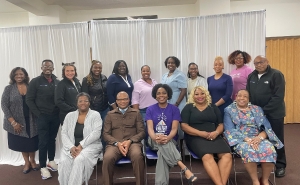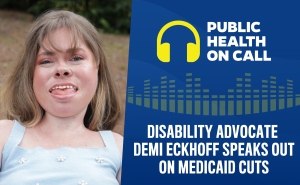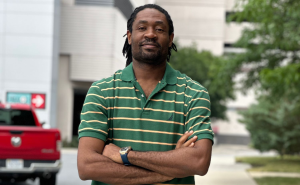With Pride
HPM Chair Keshia Pollack Porter reflects on the fight for health equity by and for marginalized groups.

June is Pride Month, the time of the year when we celebrate and honor the LGBTQ+ community. For those who notice the rainbow flags but are not aware of the history, Pride Month has its roots in the Stonewall Uprising that occurred in New York City in 1969. At that time, police would raid bars where members of the LGBTQ+ community were known to gather, under the guise of seeking to confirm that were operating without a valid liquor license (I have a lot to say about this type of profiling and harassment that persists in “othering” marginalized communities, but I will save that for another column). On June 28th 1969, the police raided the Stonewall Inn, a bar in Manhattan, and while the LGBTQ+ rights movement didn’t begin with Stonewall, according to the Human Rights Campaign, the Stonewall Uprising “helped ignite the modern LGBTQ+ rights movement and harness the political power of the LGBTQ+ people.” On June 28, the world also celebrates International LGBT Pride Day, which offers an additional reminder of the importance of the Stonewall Uprising to human rights around the world.
To advance policy advocacy with and for the LGBTQIA+ community, we must educate students and practitioners on the history of and opportunities for achieving health equity for marginalized communities. I am proud that faculty in the Department of Health Policy and Management created one of the first courses that centers the LGBTQ+ community: Issues in LGBTQ Health Policy. Jointly taught by Professor Joanne Rosen, JD, MA and associate faculty and HPM alum, Kellan E. Baker, PhD, MPH, MA, this course provides an opportunity to unpack how health policies, both historical and contemporary, have contributed to and/or reduced health disparities within LGBTQ communities, as well as policies that aim to rectify inequities. Professor Rosen, a public health lawyer on our faculty, also teaches Legal and Public Health Issues in the Regulation of Intimacy, which provides opportunities to discuss state regulation of intimate decisions, including same-sex sexual activity and same-sex marriage. I am also proud that our department has a deep history of educating public health leaders and engaging in scholarship with and in support of the LGTQIA+ community. During Pride Month in particular, I honor all this work and the faculty, staff, and students in our department who are leaders in this space.
I would be remiss to not also mention that June is Caribbean American Heritage Month. I am the proud daughter of a Jamaican mother and Dominican-born, St. Kitts-raised father who immigrated to the U.S. in pursuit of opportunities. They instilled in me a diligent work ethic, and the belief that I was made on purpose and am here to fulfill a purpose—a tenet that leads me each day. Through them, I cultivated my passion for service and equity, and they are a main reason that today I am a health equity scholar.
I am one among many students, faculty, staff and alumni who are committed to health equity because of personal experience. And I know many more who are committed to health equity because they are, in the mold of the expanding LGBTQIA+ alphabet, allies to marginalized groups. Whatever your path, I hope that this month you reflect on how you personally are working to achieve health equity, including your efforts to shift and build political power so communities that have been marginalized for too long have a seat at the table and a voice in policies to advance health equity.
Know your own power and when you have the opportunity to share your power with marginalized communities in their pursuit of health equity, use it. With pride.





